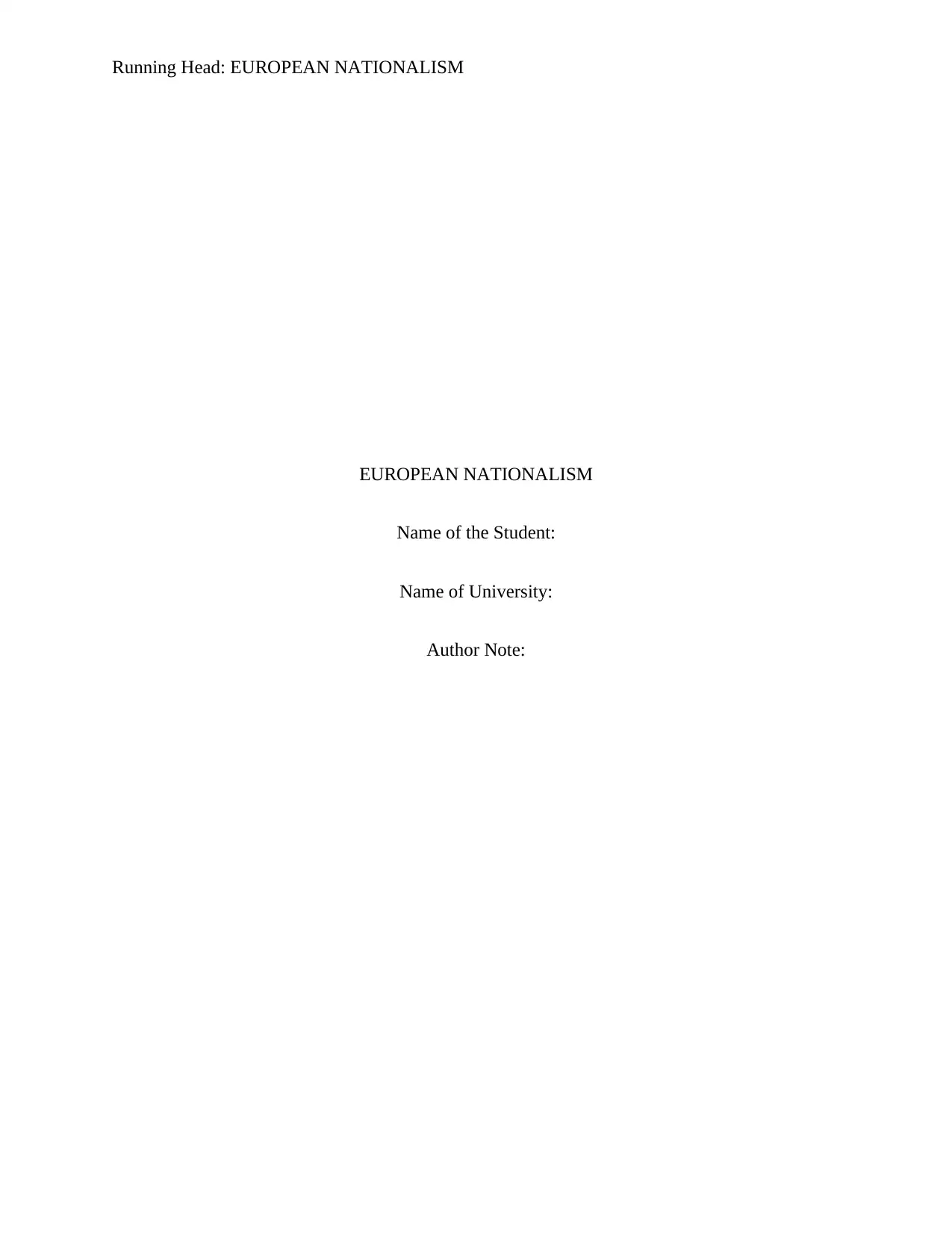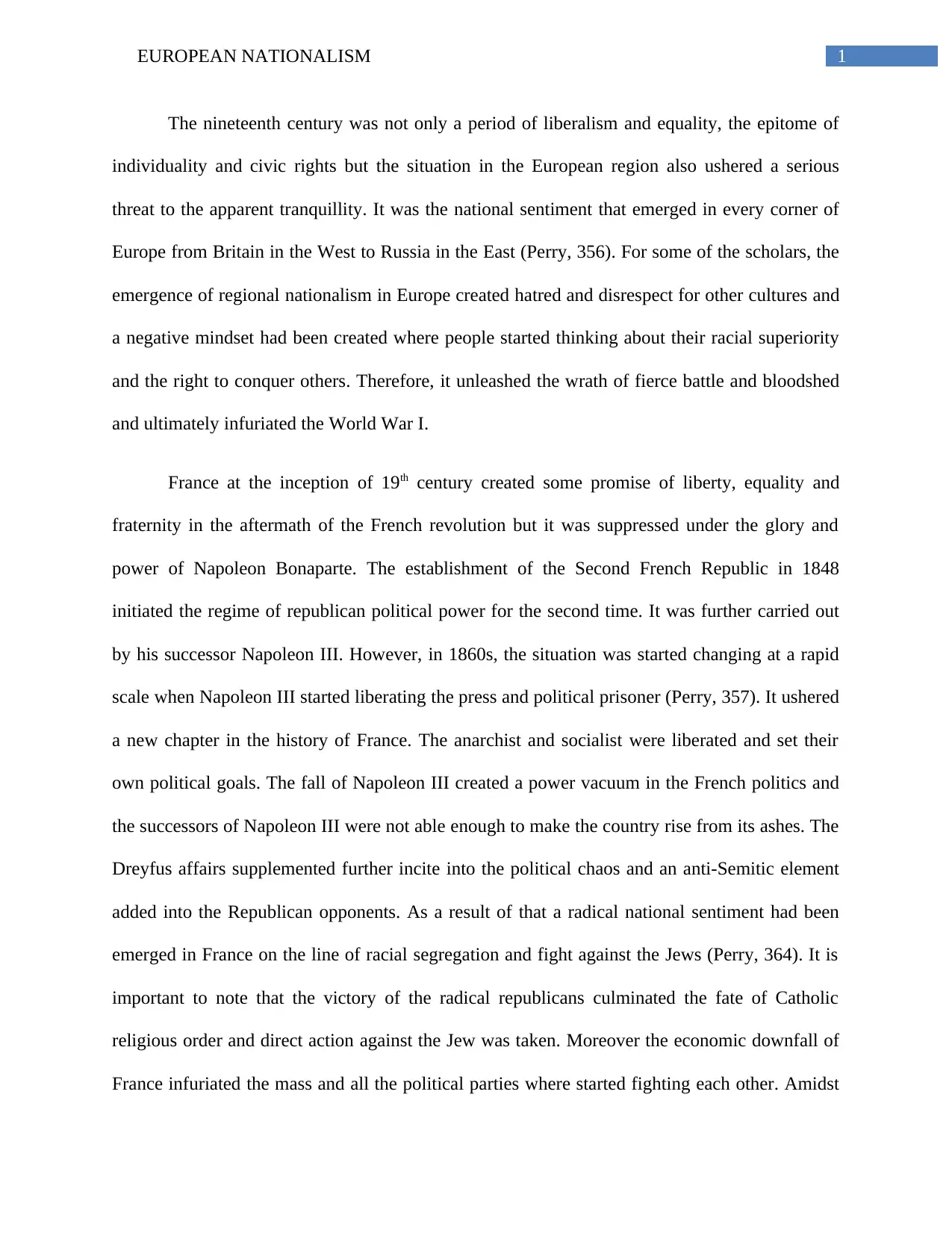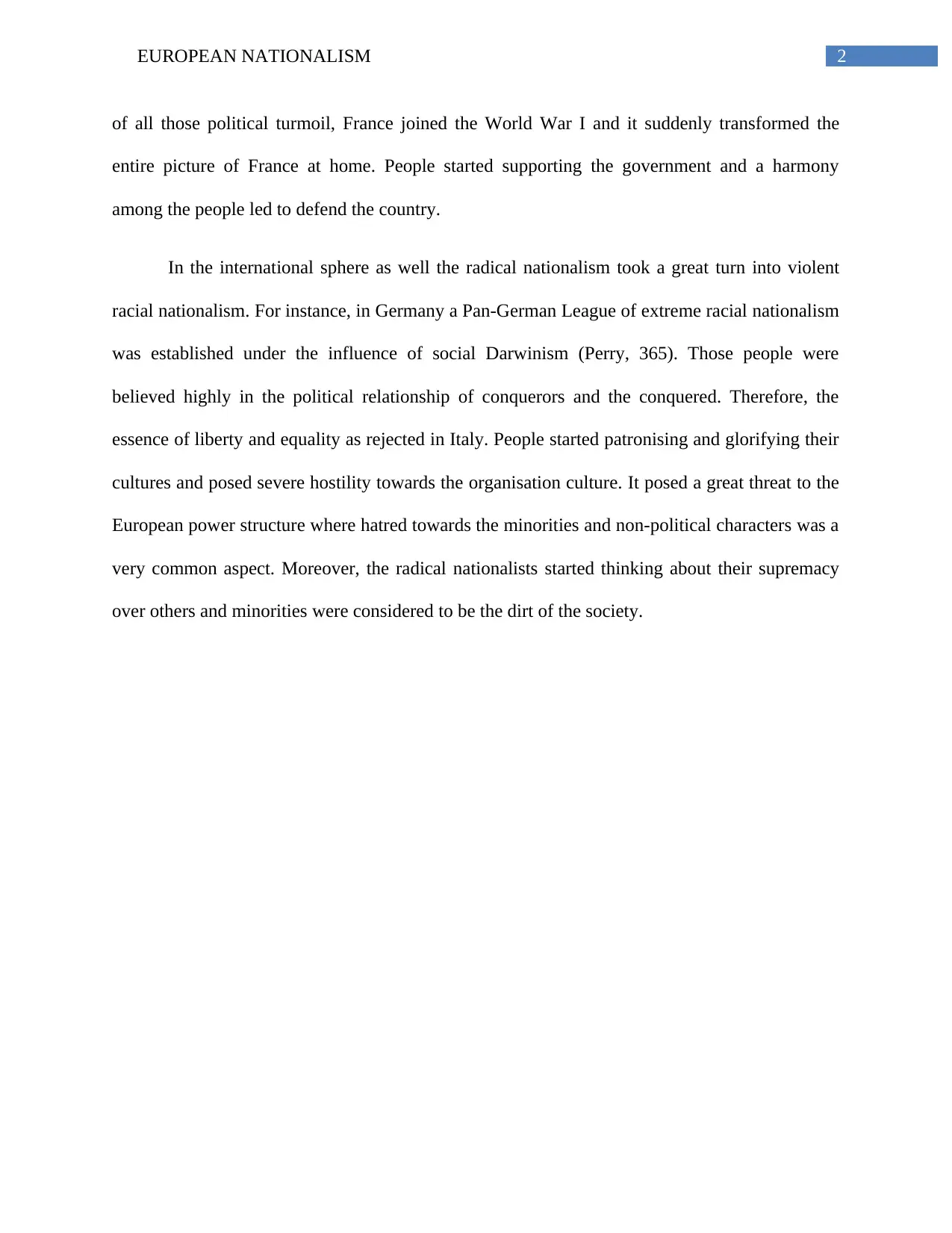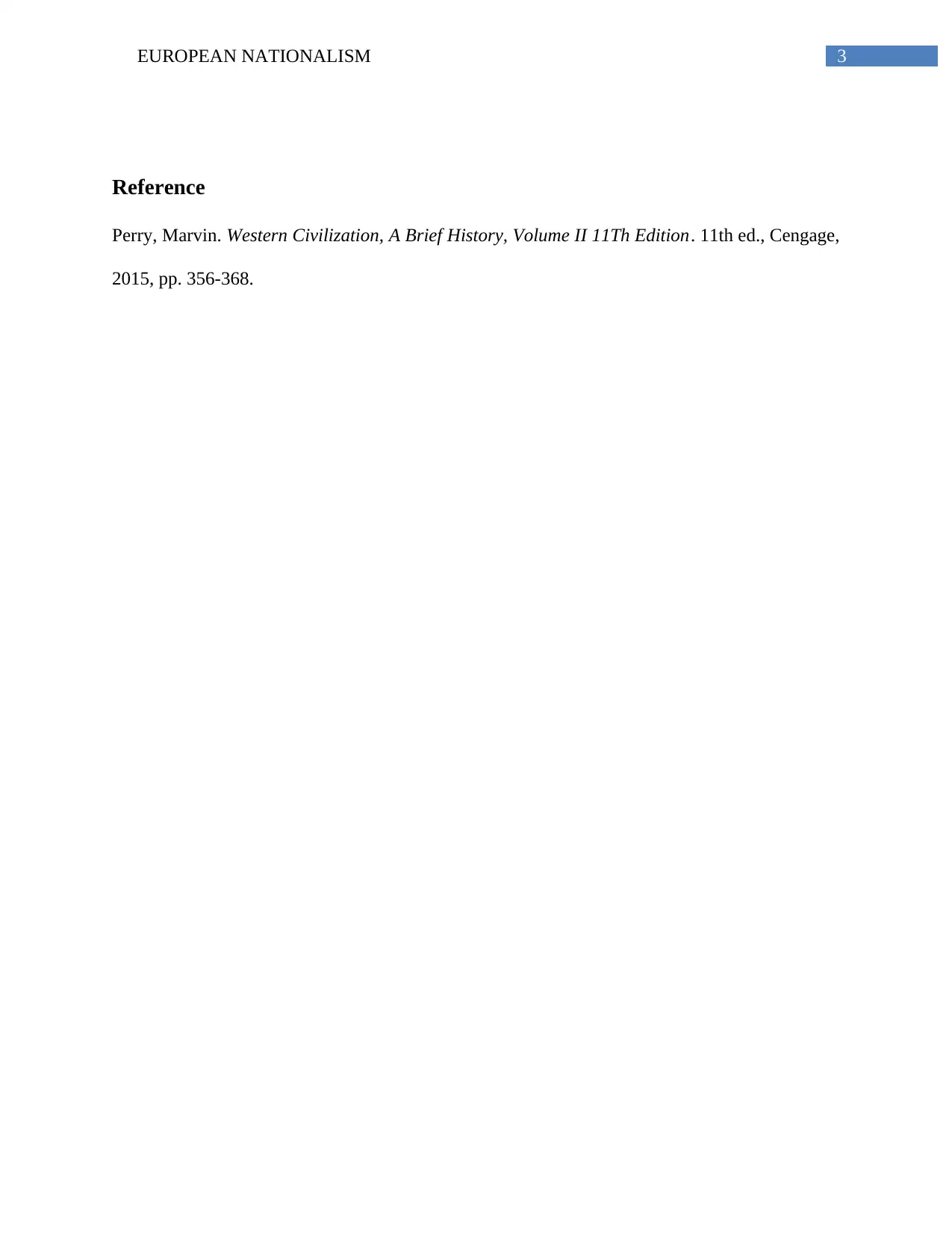European Nationalism: Examining its Historical Significance
VerifiedAdded on 2022/09/25
|4
|606
|87
Essay
AI Summary
This essay examines the rise and impact of European nationalism in the 19th century. It begins by outlining the general context of nationalism in Europe, mentioning the emergence of national sentiments from Britain to Russia. The essay then delves into the specific examples of France and Germany, highlighting the influence of the French Revolution, the rise of Napoleon Bonaparte, and the subsequent political turmoil in France, including the Dreyfus affair. It further discusses the emergence of radical nationalism and its effect on the political landscape. The essay also explores the rise of Pan-German League in Germany and the rejection of liberty and equality in Italy. The essay concludes by exploring the impact of these developments on the outbreak of World War I. The essay utilizes the provided reference to support its claims and provides a detailed overview of the historical context.
1 out of 4





![[object Object]](/_next/static/media/star-bottom.7253800d.svg)